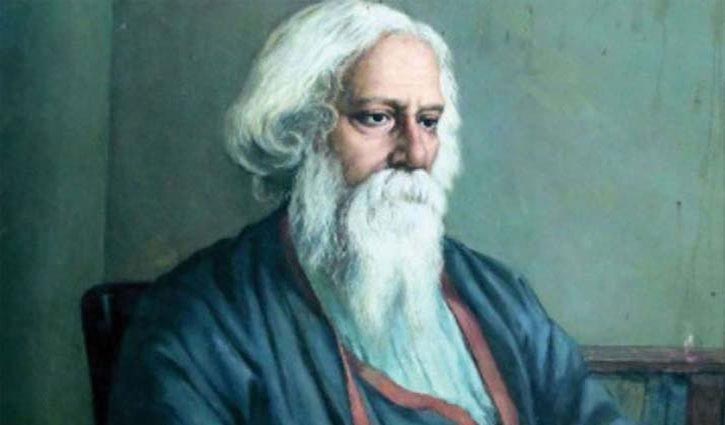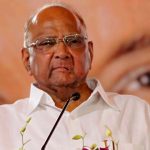May 9 this year is the occasion for the observance of the 162nd birth anniversary of the globally admired poet and visionary Rabindranath Tagore. Born in Calcutta in 1861, Tagore lived an active life of 80 years till he died in 1941 on August 7 in the midst of the devastations caused by the raging second world war. So much has been written in Bengal as also outside, both in India and abroad by the scholars about the multifaceted genius of Tagore that there is little scope for writing anything new about this great Indian.
But still, one can attempt to look at his views about the nationalism, British rule in India, the factors which led to war among nations and what was the nature of exploitation in society. The great thing about the poet is that he was on the move constantly toying with new ideas, imbibing both the best of the knowledge of the west and fusing it with the solid foundations of Indian history and philosophy. This process of consistent search for innovation of his outlook with new sets of knowledge continued till his last days.
In fact in the last decade of his life, he showed extraordinary capacity in understanding the trends in the world politics and opted for the side of democracy and freedom when many of the stalwarts of the country’s national movement were in two minds. His last world view which he prepared in May 1941 for his birthday, but could not read himself due to ill health, was a classic in understanding the nature of the political forces in the war ravaged world during that period of fascist victories. Tagore died three months after but his analysis was prophetic.
Coming back to the period of the birth of Tagore in 1861, we will see that Bengal was then undergoing a churning in every social, and political sphere. Tagore was born four years after Sepoy Mutiny or what many historians call India’s first war of independence. The Permanent Settlement took place in Bengal in 1793 giving rise to groups of zamindars and intermediaries. Hindu College was founded in 1917. The rich Bengalees were getting the western education in bulk, the first group in the country. From 1817 onwards, young scions of the rich Hindu families started taking admission to Hindu College and soon under Derozio, an unorthodox teacher in the college, the gates of the knowledge and the curiosity to know more and doubt everything, opened up.
Interestingly, Karl Marx was born in Germany in 1818 one year after Hindu College was founded.. In his piece in New York Daily Tribune on July 22, 1853 on ‘The future Result of British Rule in India’ Marx wrote ‘ From the Indian natives reluctantly and sparing educated at Calcutta under English superintendency, a fresh class is springing endowed with the requirements of Government and imbued with European science’. Marx did not mention who they were but it is quite possible, he was mentioning of the Derozians and the other English education hungry Bengalees of that time. Coincidentally, Iswar Chandra Vidyasagar was born in 1820 and Michael Madhusudhan Dutta in 1824.
This period from 1817 to the end of the 19th century or early 20th century was the years of Bengal renaissance or ‘New Awakening’ according to some historians. Language and its transformation was the hallmark of Italian renaissance also. In 1849, the pioneering educationist of Bengal John Drinkwater Bethune in his address at Krishnanagar College said’ the English language will become to Bengal what long ago, Greek and Latin were to England’. Bakim Chandra Chatterjee in an article in Calcutta Review wrote in 1871 ‘it is possible to imagine that the Bengalis- the Italians of Asia as the Spectator has called them- are now doing a great work, by so to say, acclimatizing European ideas’.
This stress of constant renovation of Bengali language began in right earnest with Vidyasagar, who even set up a printing press of his own and the stream got a new twist with Madhusudhan’s epics and sonnets. This entire course blossomed its fullest in the works of Tagore in his diverse works from poems, songs, dramas, novels, short stories and essays. In a way, it was culmination of the course of Bengali renaissance from the time of Rammohan Roy who was born in 1773.
Tagore was a voracious reader. He had many European friends and he used to get books and important other writings from different corners of the world, especially Britain, apart from his friends in India. He took interest in different social movements in Europe and read books about those. In 1892, Tagore wrote an article in the Bengali periodical ‘Sadhana’. He wrote in this piece about the social movement in Europe led by the socialists and mentioned that the British papers writing extensively on these meant something of revolutionary importance might be happening. He commented also that in recent period, the Roman Catholic Church had also been cosy to the socialists. He gave the example of Vatican head Pope addressing a group of French workers and sharing their woes.
In this Sadhana article, Tagore mentioned about an article of Ernest Belfort Bax (1854-1926) on socialism and explained how the workers were being exploited and there was need for protests against the employers. Significantly, Bax was the one who wrote on life and teachings of Marx in 1881 during the lifetime of Marx. Marx died in London in 1883.. It is not known whether Tagore read in details about Karl Marx or Lenin. But he had very clear ideas about what were the issues involved.
In 1929, Soumendranath Tagore, related to Rabindranath met the poet with his Bengali translation of ‘Communist Manifesto’. Soumendranath translated it as ‘sadharan Sattabadi’s Istehar’ in Bengali. Tagore was not happy with this Bengali rendering, it is learnt. But when another prominent leader of the CPI met him and wanted to know what should be the correct translation of ‘proletariat’ in Bengali, he suggested ‘atmasrambanchitasreni meaning the class deprived of their own labour.. This was more accurate as against Sarbahara which the communists were using then and still this remains.
Tagore visited Russia in 1930 and all his impressions are there in his famous ‘Russiar Chithi’ in Bengali. He was ecstatic about the educational advances and especially the freedom women were getting. But at the same time, he was unhappy at the curbs on the individual liberty. He favoured a socialist system with full freedom of expression and individual rights. He told many of his close aides including Prof Prasanta Chandra Mahalanobis who was his secretary for some time that by curbing human rights, a fair society is not possible.
In the last decade of his life, especially in the second half of 1930’s Tagore got more and more interested in global developments, especially in Europe. He had undergone some embarrassing moments in Italy due to his misjudgement about Italian dictator Mussolini and his aides. From then onwards, he was very careful. He monitored the developments in the tumultuous days of 1930s with the coming to power of Hitler in Germany. He dreamt of a fusion of the best of East and West, but the developments in Europe from the days of the rise of Hitler pained him.
In his’ Crisis of Civilisation’ piece, he said ‘ All over Europe, barbarism has bared its bloody fangs striking terror in every human heart even as an epidemic of repression rears its ugly head from inside the very core of western civilisation’. According to Tagore ‘As I look around, I see the crumbling ruins of proud civilisation strewn like a vast heap of futility’. But the poet who had been nursing the hopes for a just society since his childhood, was not losing his optimism. He said ‘Even in this darkest hour, it is a grievous sin to lose faith in man’.
That was his last message three months before his demise. After long 82 years, the message remains relevant though the battle for a just society has become tougher more and more in India as also in many other nations. But then the battle has to continue as hope in human beings is eternal. (IPA Service)




 Sharad Pawar Has Now Emerged As A Stronger Leader To Lead Battle Against BJP
Sharad Pawar Has Now Emerged As A Stronger Leader To Lead Battle Against BJP 